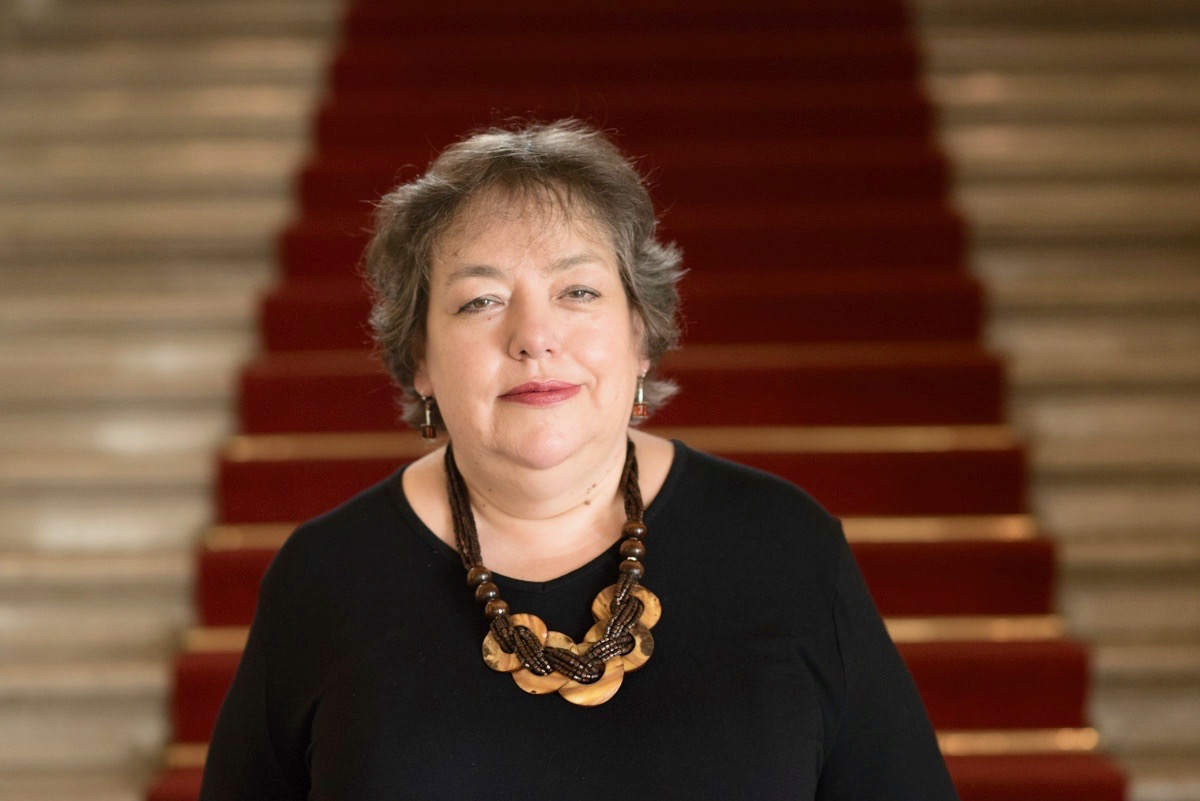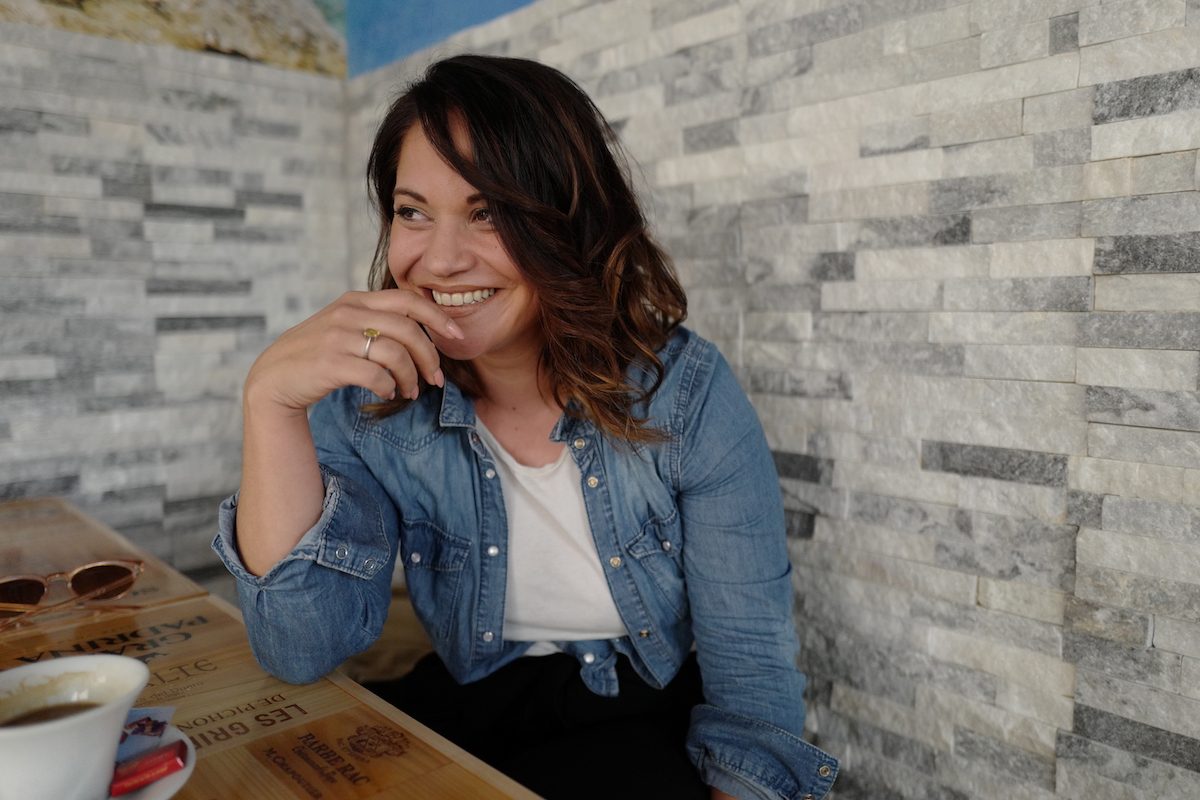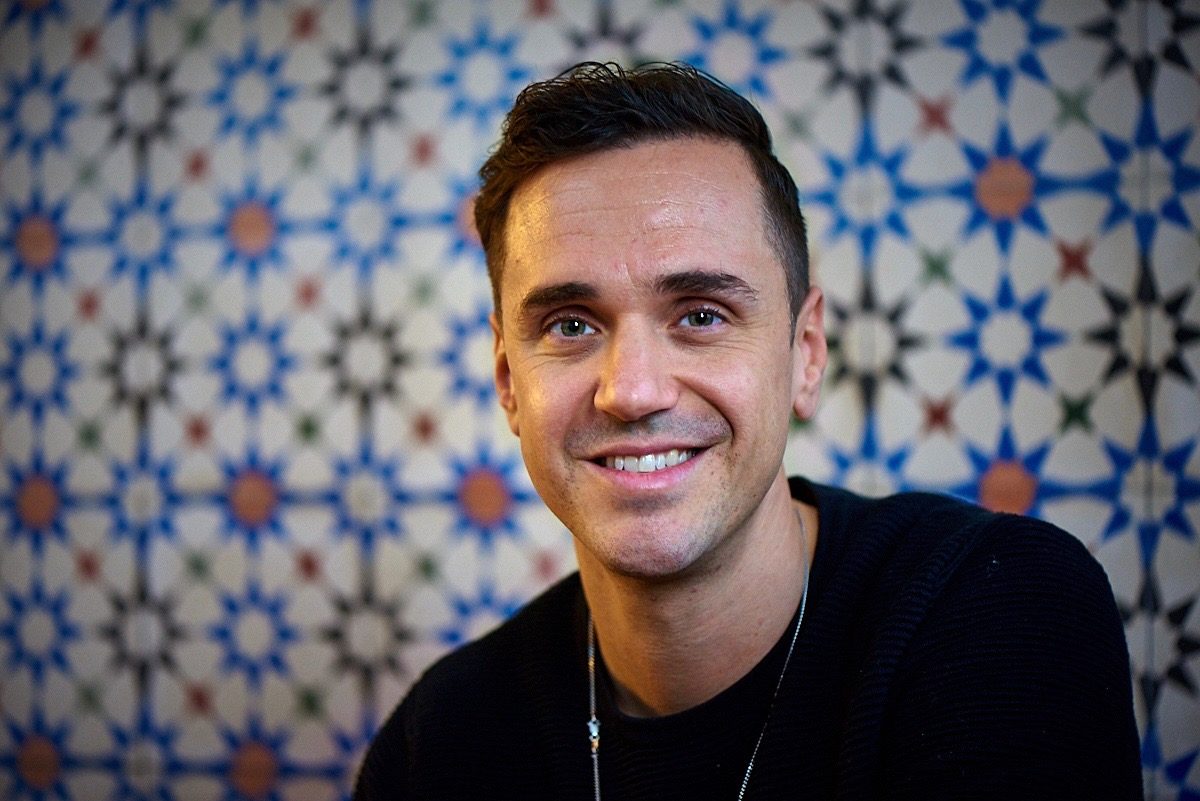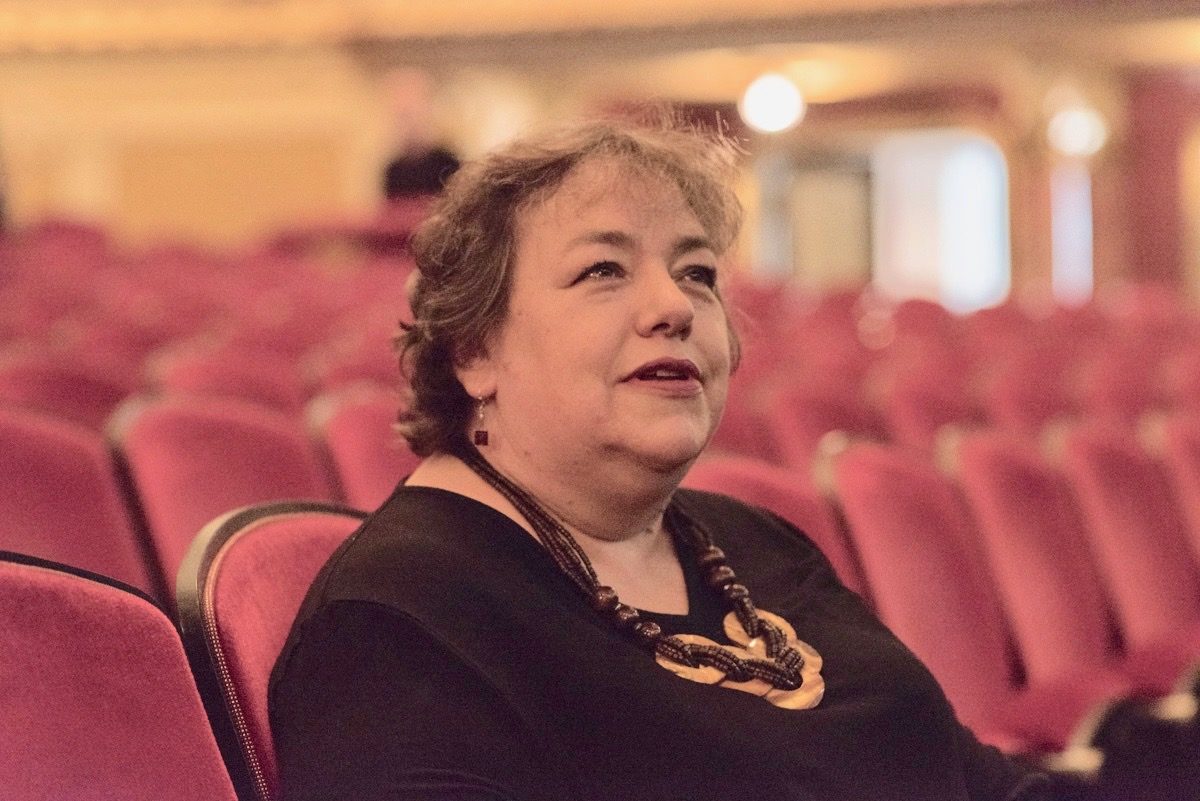
“Opera contains deep feelings you don’t experience in life.” Sabine Appenzeller, music teacher
As a five-year-old, Sabine Appenzeller played opera with her Lego. Today, the fifty-year-old plays a key role at the Zurich Opera House as its right hand. How the auditorium personnel manager handles “opera groupies” and why she didn’t follow her dream of being a professional opera singer.
“As a fan of opera, of course you have a theatrical soul, too.”
Anna Maier: When did you get the opera bug?
Sabine Appenzeller: It was at a very early age. Although my parents aren’t professional musicians, they are huge fans of opera, particularly my father. Nowadays, you would say he dragged us into the opera in an almost brutal manner.
At what age?
I think I had already seen the Magic Flute at 5 years old. I have two brothers and we all found it unbelievably fascinating. We recreated whole opera scenes at home using Lego. We all played at least two instruments, which was very much encouraged by our parents.
What did you play?
Flute and piano.
Were you able to choose them yourselves?
Yes, we could. It wasn’t horrific. But my parents made sure that we had a lot of contact with classical music.
What kind of people are receptive to opera? What does it take for someone to develop a passion for it?
For opera, you need to like singing. We sang a lot at home, that was a matter of course. You also have to be a theatrical soul. Of course, we also went to concerts, but that fascinated us all much less, when you only hear the music. The interplay of theater and drama in this beautiful house is a package which totally struck me and my brother. He is also a musician. Sometimes, I still wonder now why it worked like that. We’re both crazy about opera and both became music teachers.
“I’m fascinated by the voices! How people can sing so loud and so beautifully.”
Opera house artistic director Andreas Homoki describes the fascination of the opera through the directness of the moment. Something happens in this space that only those present can experience. Were you able to understand this artistic approach as a five-year-old?
I was just always fascinated by the voices. How people can sing so loud and so beautifully. I can still remember productions from very long ago. At best, the interplay of theater and music is so good that it sticks in your memory. The music alone is less fascinating for people. The drama alone also doesn’t quite achieve that intensity. It’s the opera that brings everything together. Even the building has a certain radiance. In former times, people were dressed much more nicely when they came to the opera.
You wore patent leather shoes back then to go to the opera, at the age of five?
Yes, every time. At five years old, I saw The Magic Flute and then more and more, little by little. My parents chose the pieces carefully. I wasn’t going to see a Wagner when I was six. They always prepared us very well, too. We sang it through at home.
No way!
Yes. My father played piano brilliantly and we squawked or, if we could, sang along. So we already knew the pieces. I think that’s important. When you already know the melodies, you have something to grab onto.
What did your parents do for work?
My father is a lawyer and my mother is a high school teacher. But music was always important. My early memories are of my parents playing the piano duets, for instance. Sometimes, it was almost a little annoying, but they really did play Schubert duets for hours. It was just always important. It was important to them to pass that on, too.
“Children don’t distinguish between classical and pop music. Pop music comes with all that hoo-ha, of course.’
Today, you are responsible for musical outreach in the opera house and concert hall. You did a Masters specifically for this purpose at age 44. What your parents did for you, you now do for other children.
Yes, you could put it that way. As well as my work at the Zurich Opera House, I also work in Schwamendingen in Zurich as an elementary school music teacher. My students are all first and second-graders. I sometimes also do projects in kindergartens. These are very much focused on classical music. Now, of course, people do Andrew Bond songs and things like that, too, but for me, it’s particularly important that you inspire a joy of singing in the children, so that it becomes a matter of course for them.
But in an era where every country has its own singing shows, the kids prefer to sing pop songs much more. How many sympathetic ears do you come across in elementary schools with classical music?
Of course, we don’t completely ignore pop, but I do in fact encounter plenty of sympathetic ears. Obviously, I select the classical music carefully, too. Then the music itself moves the children. Mozart is our current topic. Even the life of the man himself has a theatrical element that’s good to work with. We look at what he wrote as a child, what he wrote as an adult, and so on. When you find this kind of way in, you can get classical music across well. I don’t get the sense that children distinguish between classical and pop music from the beginning. Of course, with pop music, there’s all the hoo-ha that comes with it.
You could say the same thing about opera, couldn’t you?
Exactly, just a bit different. It’s not like you can really claim that Mozart is easier to introduce than pieces of new classical music. Children are much more open than adults in that regard. We are quick to say “new classical music is much too difficult to listen to,” but if you give the children a hook they can grab onto, they can listen to it and understand it very well.
Are there people you can’t reach through music?
I don’t think I’ve ever met anyone where that was the case. Maybe teenagers during puberty. But there are usually other reasons. They often think being interested in classical music isn’t cool enough. But I think that every person has a type of music that speaks to them.
You have been working here at the Zurich Opera House for 30 years, and are seen as its right hand. Do you experience the opera house differently from when you visited just for performances?
Yes. In a certain way. When I come here to the opera house, I know everyone. I was recently at the Scala in Milan and that was a real opera visit for me. I didn’t have to worry if someone was late. I was just there to enjoy the opera.
Alexander Pereira was the artistic director of Zurich Opera House for 20 years and now occupies this role in Milan. Did you visit him?
No, he wasn’t there.
They say that the opera had a massive glamor factor when he was there. What was your experience of his tenure as artistic director? In your opinion, how has opera changed over the past three decades?
Not that much has actually changed in our day-to-day. Glamor and what is known as “director’s theater” existed back then, more or less. It has to be said: people, as well as opera houses, change over time. Under Mr. Homoki, a broader range of people are coming into the opera house. It’s much more open. This is also consciously promoted with events such as “Opera for all,” or the opening festival. Young folks are being more strongly encouraged. With Mr. Pereira, drama teaching was only available on a very small scale. That’s partly due to the change of artistic director, but is also certainly to do with trends.
 “Opera is good for the soul.”
“Opera is good for the soul.”
You are doing a lot to safeguard the future of opera, so that young people find a way in. What does it take to go from listening to opera in primary school to going of your own volition as a young adult?
That’s exactly the point. As long as the parents are still saying “we’ve signed you up for something,” it’s all fine. It’s then a huge leap to the over-16 offers, when the children decide themselves whether they’re coming. That’s where it gets harder. They don’t sign up by themselves. You have to do a crazy amount of advertising. Those who have once been involved in one of our projects then come back because they know the same people are there. I think 15- and 16-year-olds don’t like to sign up to events they don’t know.
Why is it so important to you that young people have access to classical music?
I care about introducing classical music to children and young people because I think it’s valuable. It’s good for the soul. Ultimately, it’s also simply about survival. But from the outreach perspective, the idea is that you should offer everyone the chance to go to the opera at least once, so they have seen it. It’s wonderful when someone then really finds their way in. There is often a gap. People come up to age 25, when they’re students – of course, they get in cheaper then, too – then there’s a family period up to 40. When they’re over 40, around 50, they come back. The biggest gap is between 25 and 45. It’s not the case that the very young don’t come to the opera.
Are you also driven by the concern that cultural heritage could be lost?
I wouldn’t say that opera is dying out. It will survive. There’s a certain quality in seeing a person and orchestra on stage without amplifiers and electronics. It’s much more moving.
You’ve probably seen hundreds of operas. When was the last time a piece really moved you deeply?
I’d have to think. I’m not talking about the staging, just about the music. I would say at Maria Stuarda. The ending with Ms. Damrau. The last half-hour was simply breathtaking. That’s an example of something you could play to just about anybody and every single person would probably be able to hear the power in it. It has lots to do with the person. It’s brilliant music. You can empathize with the situation: she is going to be beheaded soon and sings for her life.
“We all know that love in real life isn’t the same as in the opera.”
With respect, I suspect hardly anyone will be able to empathize with that…
No, but the depth. Opera contains very deep feelings you don’t experience directly in life. Many people are receptive to this. That’s what opera can do: move you deeply through the music and the person standing on stage. So many different things come together. When they all come into play, it’s incredibly moving, like nothing else.
Isn’t it your own story that you bring to it? Death has to do with an ending, with being left behind, with situations that we might have experienced ourselves. Do you agree?
Yes, or perhaps it’s a yearning for deep feelings. We all know that love in real life isn’t the same as in the opera. Those are yearnings. Some love stories are very straightforward. But everyone also enjoys watching royal weddings, it’s the same principle: a yearning for an ideal, sentimental world. Even if we know that Harry probably argued with Meghan at some point, that’s blanked out.
Is your career or your calling here in the opera house a way for you to satisfy such yearnings yourself?
Yes, I think that’s the case for all opera fans.
But more so for you? Many people go to consume opera pieces; you, however, wanted to be part of it. Tell us about your path from going on family outings to being the right hand of the opera house?
That’s a good question. I think a healthy dose of luck was also involved. As a young woman, I’d been working the doors here and thereby earned some much-welcomed spending money during my studies.
And were you able to go and see the opera?
Exactly, always. Then I became head of the department mostly by accident. I was young, around 35. In the meantime, I had always worked the doors and joined the semiprofessional choir. That’s a whole other story when you’re actually part of it. And you notice, like in “Turandot,” that your feet hurt when you have to stay on stage for a long time. It’s lovely in the opera house, but it isn’t always just joyful. I have 60 people working under me. Luckily, I do the job with a colleague who is also a friend.
What are you confronted with most often?
There are two sides: the audience, which is very important to both of us. We make sure the audience feel comfortable, that everything is running smoothly, and all issues are resolved. From lost tickets to people who feel sick and fall down the stairs. We just had an accident where someone was sick in a premiere. We would also share responsibility for evacuating the opera house, which has luckily never happened. Then we have the employees. They’re mostly female. Each has their own worries that they bring to work with them.
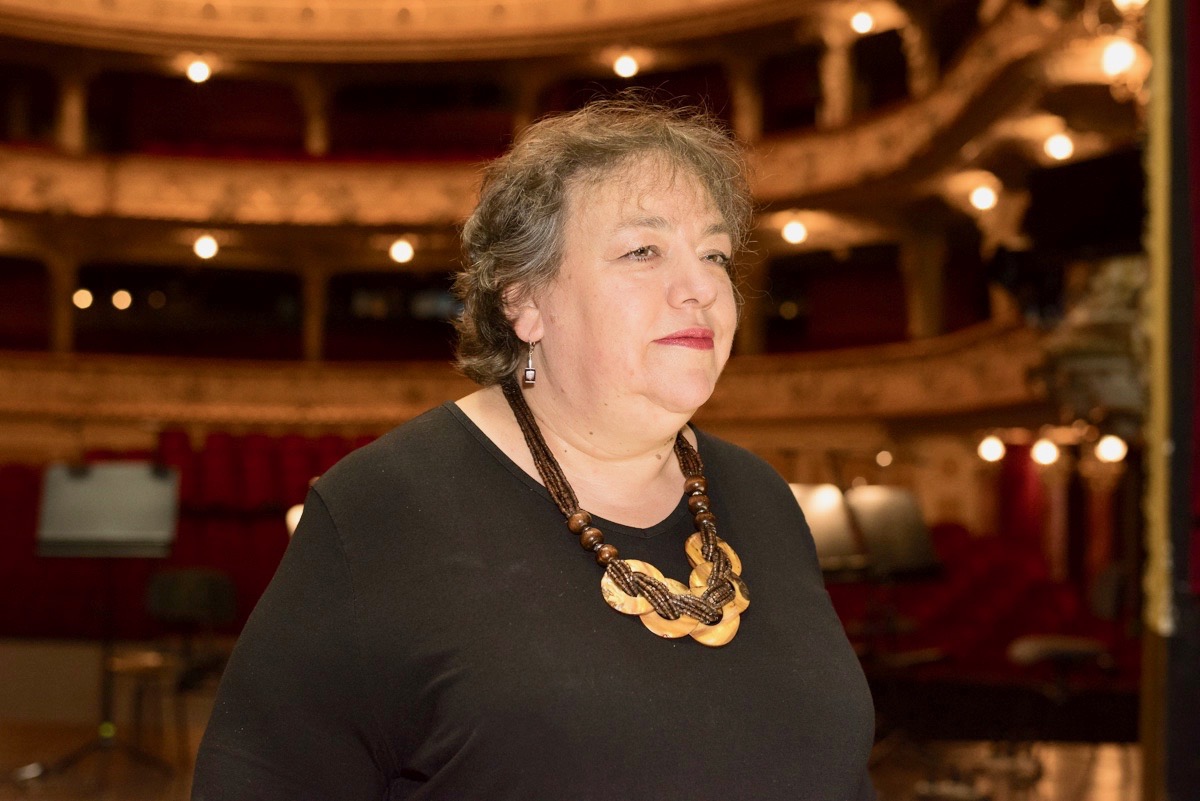 “A huge fan of the opera died at one of his favorite singer’s performances.”
“A huge fan of the opera died at one of his favorite singer’s performances.”
What event in the opera house do you remember best?
There are lots, of course. One experience particularly stuck in the mind. A huge fan of the opera died at one of his favorite singer’s performances. That preoccupied us for a very long time. But his wife later said that he couldn’t have gone a nicer way.
You previously mentioned that you particularly enjoy the theatrical. How much drama have you covered in your job?
I tend a little towards drama. I have a loud voice and a certain temperament. My parents are very old but they still come to the opera, and they usually don’t know whether I’m working or not. Then my father always says he just has to stand down in the foyer, listen for a moment and then he knows whether I’m here.
Where does this temperament come from?
You’ve either got it or you don’t? My mother is the same way.
Did you never dream of going on stage as an opera singer yourself?
Yes, of course. As a child, I thought that one day I’d be a prima donna. But those were just dreams.
Why didn’t you continue along that path?
I don’t know. I know the really tough side of it. From that perspective, my situation is ideal. I’ve got my hobby. I sing a lot, I sing in the semiprofessional choir and make church music, but all without any of the huge pressure. I don’t depend on singing to earn my money. I know a lot of unhappy singers who can’t get work. It’s a very difficult path.
“I know so many people my age who get a job here and there but just don’t have any money.”
What would put the most pressure on you?
I think in that sense, I am quite boringly Swiss: I wouldn’t earn enough money, or at least not regularly. I know so many people my age who get a job here and there but just don’t have any money.
How closely do you work together with the singers?
We are the link between the audience and the singers. We also have a lot of sponsorship events, where the singers join us at the end, or there are autograph sessions, or fans who come and say that they’re the singer’s grandmother and they absolutely have to go to the dressing room – you have to clarify that beforehand.
Are they really their grandmothers?
Hardly ever, no. There are also a lot of people who say they’d arranged a meeting. Sometimes it’s true and sometimes it isn’t.
Opera groupies?
Yes, we have to make sure they don’t get into the dressing room.
Which opera singers are you in awe of?
I’m actually in awe of any opera singer who sings and rehearses a whole part. I know what it takes to know a choral part inside out, until you can direct the choir. I also know about solo singing, because I still perform church music. I’m in so much awe of anyone who does it on a stage. You can’t even begin to imagine what that takes if you haven’t done it yourself on a smaller scale. And what it takes to make sure you’re always healthy, you know everything by heart, you can do everything the conductor wants. That shouldn’t be underestimated. But, of course, there are also singers I really like. I think Cecilia Bartoli, for example, is completely magnificent. She’s the same age as I am.
You grew up together?
Yes, you could put it that way. We’ve known each other since she was here way back then, at the age of 18.
Over the years, do you build friendships with the singers, too?
Yes. I happen to know Cecilia Bartoli a little better now. For personal reasons. I think it’s incredibly thrilling when someone can maintain this level for such a long time.

Sabine Appenzeller in conversation with Anna Maier
“If you really want to be great, you have to properly limit yourself.”
What do you need to do it?
Ironclad discipline.
With regard to?
With regard to everything. You have to practice a lot, read a lot, you can’t eat everything, you have to stay fit.
So something of a straitjacket?
And you have to live life in between. If you really want to be great, you have to properly limit yourself.
Do you have a ritual before you go on stage?
No, none.
“People possibly imagine this to be more glamorous than it is.”
Really? What is the last thought before you go out?
People possibly imagine this to be more glamorous than it is. Usually, in the last few seconds, you have to look and see where the person in front is standing or check what the next cue is. Perhaps soloists have their rituals, but it’s less common in the choir. There’s so much going on backstage that you’re much too busy for reflection. You have to make sure that you catch the performance, that you’re outside in time, that you know what you have to do. I also sing in Turandot. There, we have to stand in the center for half an hour. You just hope you’ve got the right shoes on. This production premiered in 2006 and back then, I laughed at everyone who went on about how much their feet hurt. Now I’m at an age where I notice it, too.
When can you go to bed at night feeling truly happy?
In theory, I can always go to bed truly happy because I always go straight to sleep and sleep well. That’s healing. Yes, I’m satisfied when the performance has gone well. I love to hear thunderous applause. When I’m working in the auditorium, I’m most satisfied when as many of the guests and staff as possible can go home happy. But it’s not always easy to work with 60 employees.
Is that because there are a lot of women?
I’ve always said that this isn’t the case. But everyone else says that’s how it is and I also believe it now. You just work closely together. But you have it everywhere.
In your 30 years at the Zurich opera house, countless people have come to know you as the house’s right hand. Do you actually ever get recognized on the street?
That happens to me very often, in fact. A lot of people do know me. Recently, I was in Hong Kong and someone who knows me from the opera approached me. I had no idea who it was. I think that’s funny.
Writer: Anna Maier
Images: Claudia Herzog
Newsletter
Subscribe to our newsletter and you'll get notified every time a new article is online.

